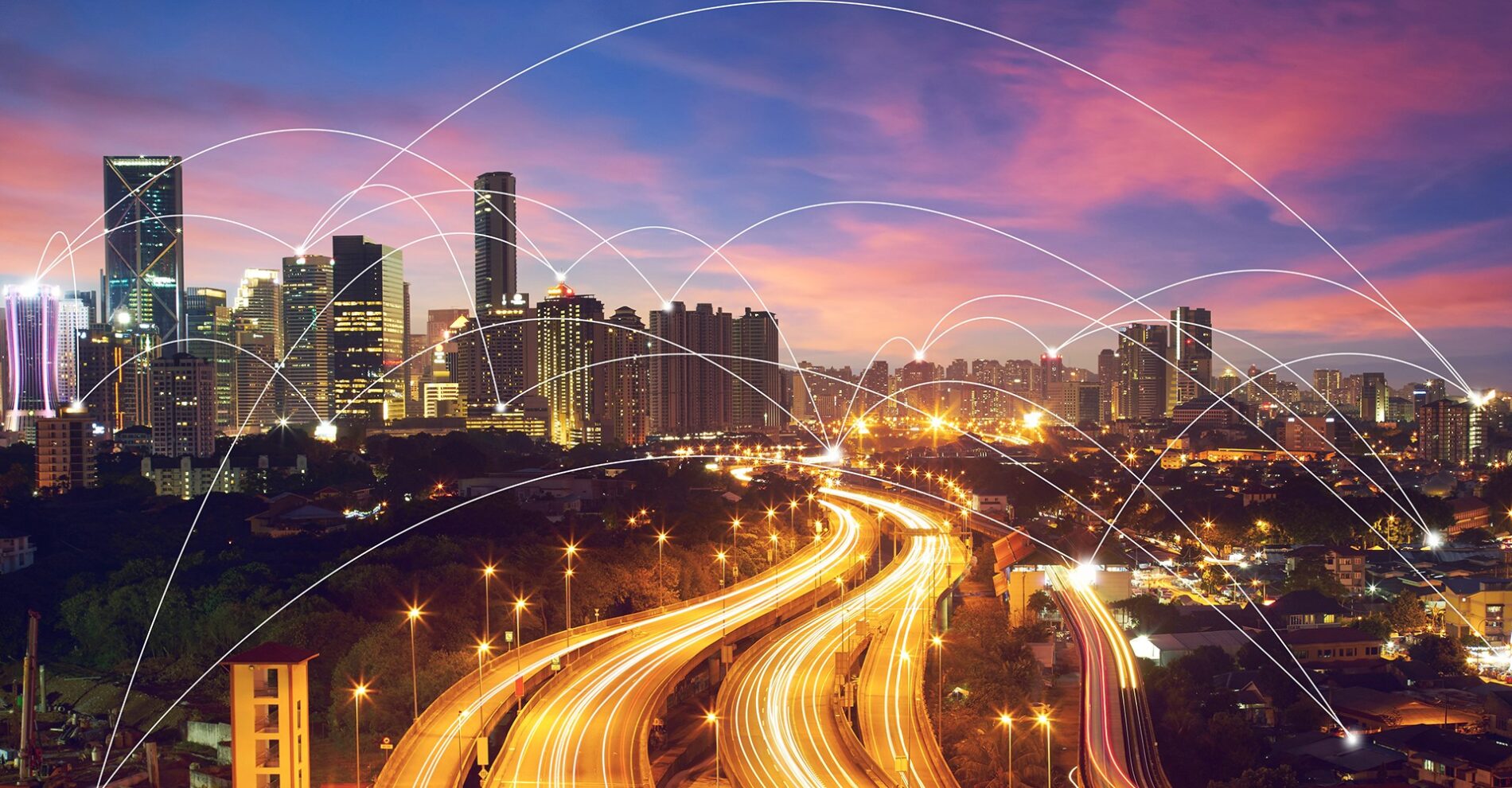
Building a Responsible Future in the AI Era
The year 2023, which has recently concluded, has left us, Indonesia, with a higher starting point to advance as a digital transformation pioneer and ASEAN’s largest digital economic force. Hosting the 43rd ASEAN Summit that highlighted the ASEAN Digital Economy Framework Agreement (DEFA), the large and diverse population spanning 38 provinces and over 17,000 islands, along with a high number of technologically savvy productive generations, presents significant opportunities for Indonesia to lead Southeast Asian nations in reaching greater heights in the realm of digital economic growth. This acceleration is further facilitated by our entry into the new era of artificial intelligence (AI).
A study indicates that AI has the potential to contribute nearly $1 trillion to Southeast Asia’s Gross Domestic Product (GDP) by 2030, with Indonesia projected to contribute $366 billion of that sum. Indeed, this represents a significant opportunity that should be collectively realized for the society.
Along with the strength and diversity of over 670 million people in Southeast Asia, Indonesia can initiate a collective movement with other ASEAN countries to promote sectoral growth in each nation, supported by AI as a Copilot. Some initial steps that can be taken include advancing medical research to create breakthroughs that can save more lives, making strides in the education sector to share more knowledge, and optimizing raw materials for electric vehicle and renewable energy industries more effectively as an effort to address climate change.
At least two key elements are essential for realizing these potentials: data and digital talent.
Data, the New Oil, and the Nutrition for AI
Over the past year, we have observed how the utilization of generative AI, such as ChatGPT and Microsoft Copilot, has begun to reshape our work dynamics. It enables workers to delegate some of their tasks to AI, alleviating their workload. Now, with services like Azure AI Studio, individuals can also construct personalized experiences tailored to their specific needs besides accessing generative AI.
Creating a personalized AI experience requires a vast amount of data, as it serves as the foundation for AI development. Simply put, the quality of AI output is only as good as the data that it learns from. The significance and diversity in Indonesia and Southeast Asia will enable a large language model AI to learn from a variety of data sources and diverse individuals, fostering a wealth of ideas and feedback. This, in turn, can positively impact the improvement of accuracy and quality and the reduction of bias in the generated output. This potential will propel Indonesia and Southeast Asia to advance rapidly in the AI-based digital economy.
‘Data is the new oil’ is a well-known statement. It has evolved into the concept that data is also the ‘nutrition for AI.’ The current challenge is that most of us have a plethora of data scattered across various platforms and technologies. There is structured data like database tables and Excel sheets, semi-structured data like web pages, and unstructured data like images and audio files. Much of our time is often spent organizing and integrating this data rather than extracting insights and fostering innovation. In response, Microsoft introduced Microsoft Fabric, an integrated analytics platform that consolidates all necessary organizational data and analysis tools.
Through Microsoft Fabric, organizations can store and protect all their data in a centralized location, enabling them to prepare data for AI-based innovations more efficiently. This will aid IT teams in securing corporate data, ensuring that only relevant teams can access such information. From a data analyst perspective, real-time data analysis can yield more in-depth business intelligence. On the business user front, equipped with the integrated capabilities of Microsoft Copilot within Microsoft Fabric, business users can utilize Microsoft Fabric much like a data analyst operates with Microsoft Excel. Business users only need to provide simple instructions to obtain the required insights, allowing them to make data-driven decisions more swiftly. Well-managed data and cross-departmental collaboration facilitated by Microsoft Fabric have the potential to generate numerous new breakthroughs within the organization.
Microsoft AI as a platform can further enhance various added values and competitiveness. In Indonesia, these achievements have already begun to materialize. For instance, a renowned property developer is pioneering the concept of smart cities in Indonesia by providing relevant and customized information services for their residents. A university is modernizing education through personalized and interactive learning approaches. A telecommunication company are elevating customer satisfaction by addressing queries contextually and resolving them more promptly. A technology firm is promoting the use of eco-friendly technology to boost SMEs’ contributions to the green economy in Indonesia. Additionally, a startup is raising awareness and interest in electric vehicles produced in Semarang to improve air quality nationwide.
Some of these examples provided are just a few of the numerous innovations continually occurring throughout the country. There is still considerable potential for additional innovations, particularly with the support of the National Artificial Intelligence Strategy (Stratnas AI) 2045, meticulously crafted by our government.
Digital Talents, the Pilot

Various AI capabilities powered by data are fundamentally designed to assist humans in focusing on essential elements in every task or job, rather than replacing them. AI can only operate with the data provided by humans and is developed to enhance human competencies. With this shift in focus, it is anticipated that digital talents will be able to effectively and efficiently accomplish more, addressing a broader range of diverse challenges, creating new things, and expanding their skills into previously unexplored areas.
In an era where AI is transforming how we work by turning creativity into a new form of daily productivity, every individual—not just AI experts—will require new key competencies. These include analytical judgment, emotional intelligence, creative evaluation, intellectual curiosity, the ability to give prompts, and proficiency in utilizing AI. Each individual must also invest more time developing high-level thinking skills (HOTS) rather than low-order thinking skills (LOTS) in their daily routines.
What does it mean? LOTS refers to a thinking skill that focuses on understanding the “what” aspect, such as memorization, gathering information, and managing data and/or information. Undeniably, LOTS currently dominates our time. However, to solve various problems and innovate, we need to engage in more HOTS or thinking skills that focus on “why” and “how” aspects, such as analyzing information with critical thinking and creatively creating/generating something. Generative AI also plays a crucial role in bridging this gap. An article from the Harvard Business Review conveys that AI enables us to automatically input and process critical context from various significant data sources, thereby saving our time in comprehending questions related to the “what” aspect.
As a result, in early 2023, with the support of the Coordinating Ministry of Economic Affairs, Microsoft launched Skills for Jobs Indonesia, which is designed to enhance digital literacy, develop digital talent, and improve employability for one million individuals in Indonesia. We continue our initiative with the AI skilling programs. Among them is Talenta AI Indonesia, in partnership with the Executive Management of Kartu Prakerja; Skills Our Future, a regional collaboration with UNDP; and Generative AI Professional Certification, through collaboration with LinkedIn Learning. Overall, these programs successfully reached over 360,000 talents in Indonesia throughout 2023, and we will continue to support the government’s target of empowering 600,000 digital talents annually. We hope the skills offered in these programs will stimulate more innovation and production in Indonesia.
Looking Towards the Future with Responsibility

What we currently observe in AI and Generative AI is still in its early stages. In the future, optimal data processing capabilities will enable unprecedented technological intensity, providing the capacity to strengthen resilience and empower the nation.
Undoubtedly, the year 2024 will be a pivotal period for Indonesia as we anticipate the next phase of democracy. During this year, Microsoft is committed to continuously assisting individuals in navigating new aspects of AI technology and promoting its responsible use, as conveyed in Circular Letter of the Minister of Communication and Information Number 9 of 2023 on Artificial Intelligence Ethics. The issuance of this Circular Letter, which positions Indonesia as a leading nation in the ASEAN region regarding government-regulated AI, deserves appreciation for serving as an initial guide for developing responsible AI-based innovations. This allows a broader spectrum of stakeholders to benefit from AI while ensuring human control, with the government at the forefront of its regulation.
Microsoft’s journey in developing responsible AI has been underway for quite some time, marked by the establishment of the Office of Responsible AI in 2019 as a significant milestone. This trajectory persists to the present day, characterized by the steadfast application of stringent principles such as justice, inclusivity, reliability and safety, privacy and security, trust, and accountability in every product and service developed. We firmly believe that Responsible AI is an ongoing endeavor, and these principles have been meticulously outlined and openly shared by Microsoft through the Responsible AI Standard. The aim is to assist a broader spectrum of individuals, organizations, and governments in upholding this responsibility.
Let us make 2024 a period filled with innovation, collaboration, and meaningful impact in a responsible manner. Let us unite and work together to empower Indonesia’s digital economy by creating a new economy based on data and AI.
###
